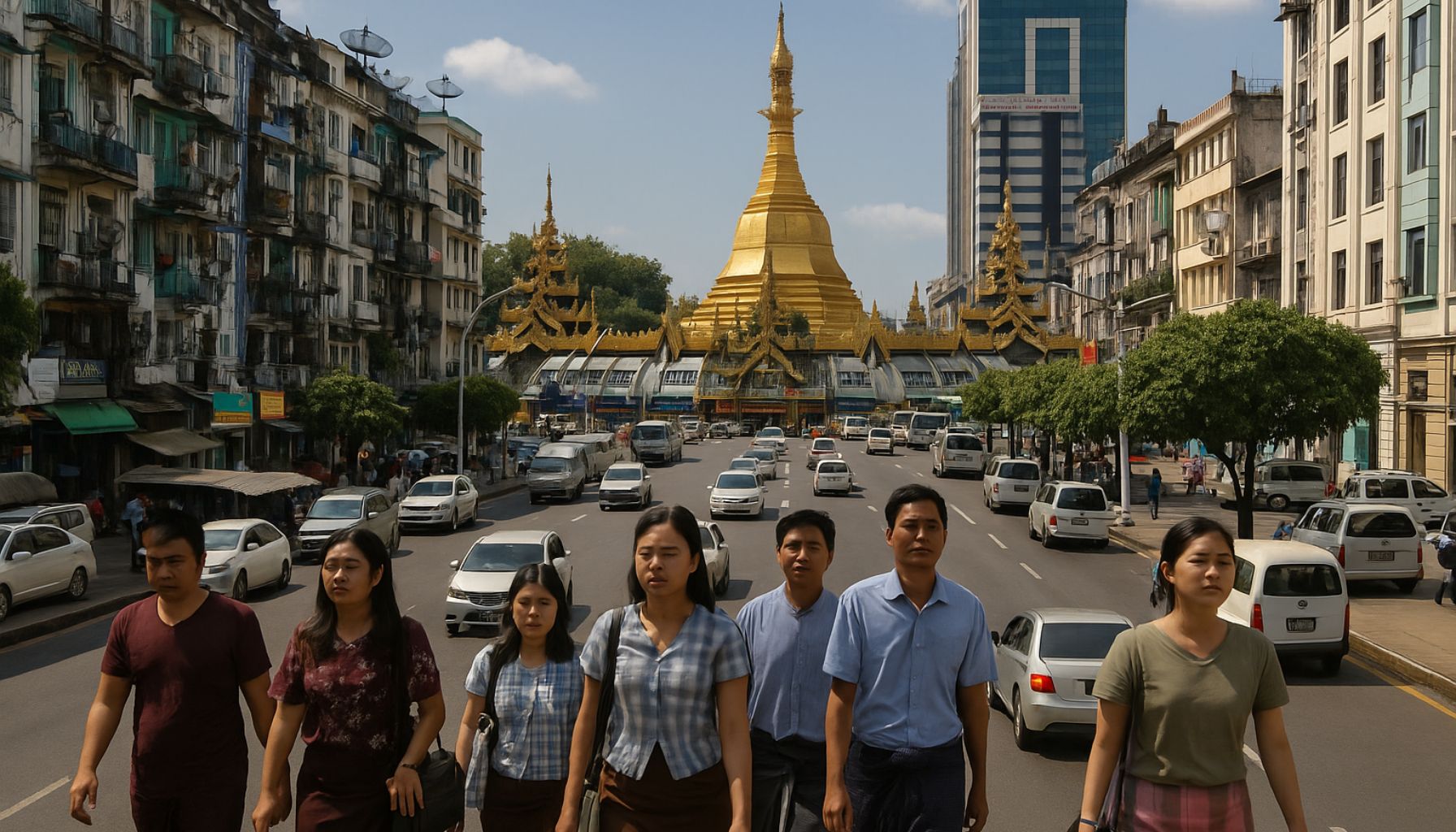MYANMAR – A Burmese American family’s decades-long hope to reunite in the United States has been derailed after Myanmar was included in the latest round of travel restrictions signed by President Donald Trump. The timing couldn’t be worse. Their relatives remain trapped in a country gripped by violent civil war, now facing forced military conscription as they watch their chance for escape vanish.
For over 15 years, a Burmese American woman and her husband had navigated the slow, complex U.S. immigration system in hopes of bringing her brother and sister-in-law to safety. After years of bureaucratic inertia and missed notifications, the couple recently discovered that the long-delayed visa approval was finally within reach. With the visa process cleared and plane tickets purchased, the pieces were falling into place—until the new travel ban was enacted.
The order, issued just a day after those tickets were bought, completely barred entry from Myanmar and nine other countries, citing issues ranging from high visa overstay rates to insufficient vetting procedures. Myanmar, formerly known as Burma, has reappeared on the list, years after being included in a similar policy during Trump’s first term.
The couple now finds themselves in limbo, unsure if their relatives will ever be able to flee the chaos unfolding in their home country. Myanmar’s current situation is dire: since a military coup in 2021 ousted the democratically elected government, the junta has waged brutal campaigns against rebel groups and civilian populations alike. Entire villages have been razed, thousands imprisoned, and millions displaced. As the regime intensifies its efforts to conscript young men, the woman’s nephews are now at direct risk of being drafted into a bloody, grinding conflict.
Under the new U.S. restrictions, individuals from the affected countries who already hold visas may still enter, but confusion over implementation has left families uncertain about their legal standing. There are growing fears that even lawful travelers could be wrongly detained or denied entry due to administrative errors or misinterpretation of policy.
In this family’s case, that fear is compounded by the emotional cost of a reunion delayed. The woman had begun sponsoring her brother during the late 1990s, years after becoming a U.S. citizen. Back then, Myanmar remained under the grip of a repressive military regime, and her brother dreamed of raising his children in a society where education and opportunity were within reach.
But the slow churn of the U.S. immigration system, compounded by backlogs and miscommunications, stretched that dream across decades. During the intervening years, the brother’s children aged out of eligibility under their parents’ application. U.S. immigration law considers individuals over 21 to be adults, meaning they must now apply separately for legal residency, facing another multi-year wait—assuming entry is still possible under future policies.
Free 30-day trial of Amazon Prime
Get your ... Free delivery, award-winning TV, exclusive deals, and more!The family’s determination to leave Myanmar has only grown stronger. Even if it means risking temporary detention upon arrival, the brother and sister-in-law remain willing to come to the U.S., knowing that being on American soil might improve their chances of helping their sons escape conscription. But with the new ban in place, their hopes have dimmed once again.
Myanmar is one of several countries now fully barred under the revised policy, joining Afghanistan, Eritrea, Libya, Sudan, Yemen, and others. Additional nations, including Cuba and Venezuela, face partial restrictions. The administration has cited national security concerns, claiming these countries fail to meet standards for passport issuance, repatriation cooperation, and visa overstay compliance.
While the proclamation includes language affirming that asylum and refugee applications remain legally protected under U.S. and international law, critics argue that these avenues have been sharply curtailed in practice. Earlier this year, the U.S. Supreme Court allowed the administration to revoke temporary protections for over half a million immigrants, leaving many in legal jeopardy.
For the Burmese family at the center of this story, the travel ban represents more than a policy dispute—it is a personal crisis. The couple’s effort to reunite their family was rooted in humanitarian need, not political defiance. Now, they find themselves blocked by what they view as an arbitrary and sweeping decision, one that ignores the human cost behind each application number and approval stamp.
Even as violence escalates in Myanmar, U.S. policy now effectively closes one of the few escape routes still available. What was once a hopeful plan for safety and new beginnings has become another casualty of immigration politics.
For this family—and many like them—the promise of reunification is now a question mark. And the consequences, measured not in paperwork but in lives and futures, continue to mount.

